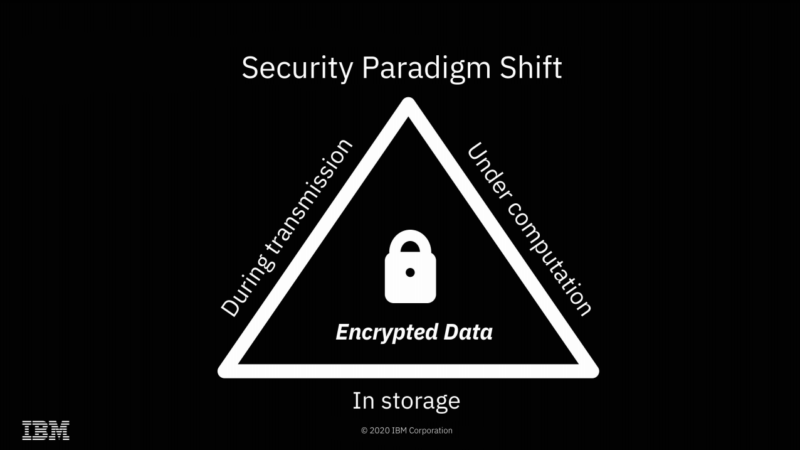IBM completes successful field trials on Fully Homomorphic Encryption

Enlarge / We're already accustomed to data being encrypted while at-rest or in-flight—FHE offers the possibility of doing computations on it as well, without ever actually decrypting it. (credit: IBM)
Yesterday, Ars spoke with IBM Senior Research Scientist Flavio Bergamaschi about the company's recent successful field trials of Fully Homomorphic Encryption. We suspect many of you will have the same questions that we did—beginning with "what is Fully Homomorphic Encryption?"
FHE is a type of encryption that allows direct mathematical operations on the encrypted data. Upon decryption, the results will be correct. For example, you might encrypt 2, 3, and 7 and send the three encrypted values to a third party. If you then ask the third party to add the first and second values, then multiply the result by the third value and return the result to you, you can then decrypt that result—and get 35.
You don't ever have to share a key with the third party doing the computation; the data remains encrypted with a key the third party never received. So, while the third party performed the operations you asked it to, it never knew the values of either the inputs or the output. You can also ask the third party to perform mathematical or logical operations of the encrypted data with non-encrypted data—for example, in pseudocode, FHE_decrypt(FHE_encrypt(2) * 5) equals 10.
Read 15 remaining paragraphs | Comments
from Tech – Ars Technica https://ift.tt/3jU5k6e
Comments
Post a Comment